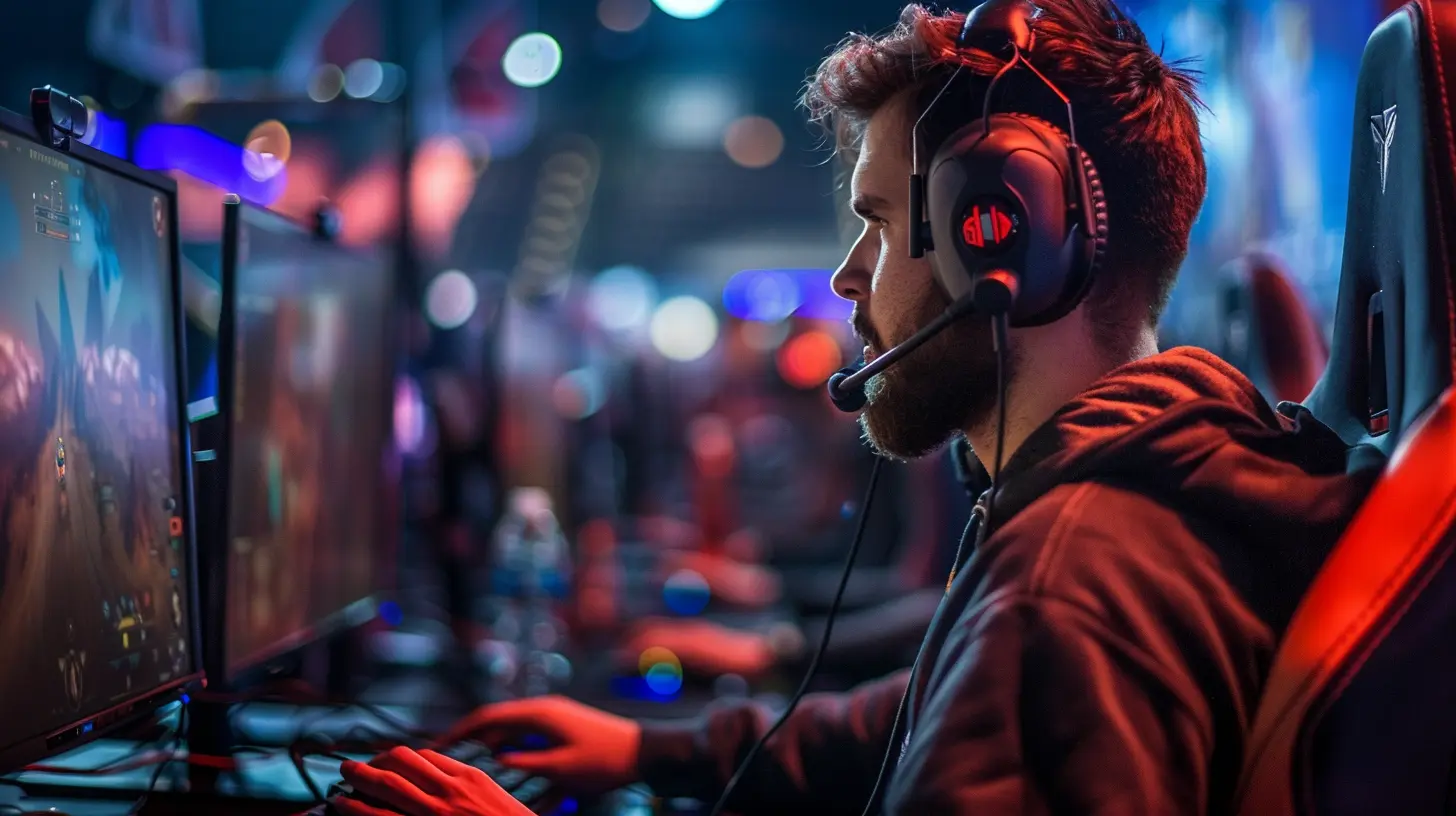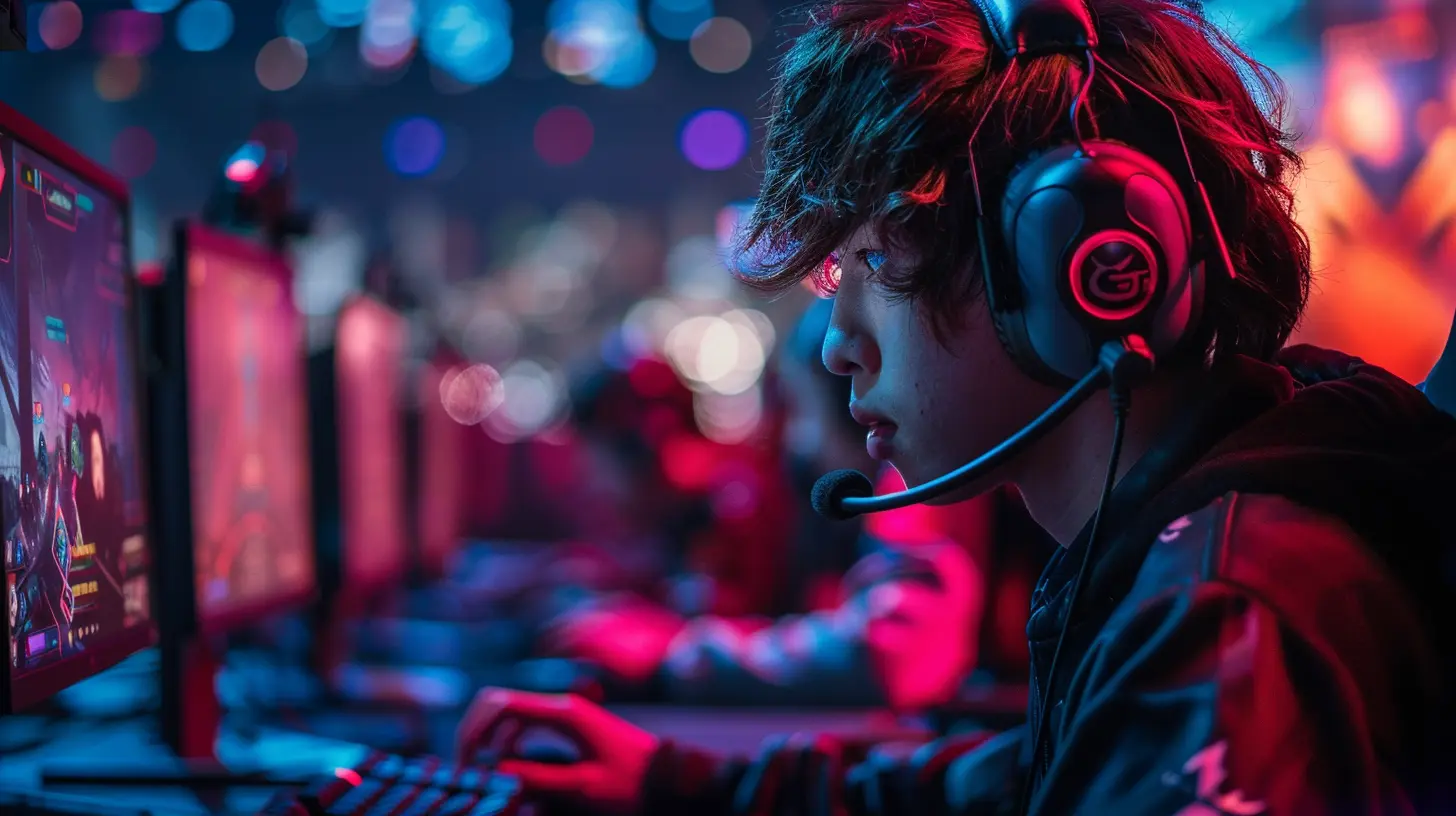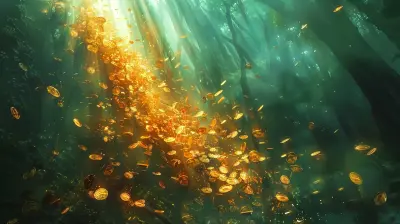Games That Redefined Competitive Esports
18 November 2025
Esports isn’t just a trend. It’s a full-blown culture. From packed arenas to million-dollar prize pools, competitive gaming has come a long way from heated couch battles over Mario Kart. But let’s be real—some games did more than just ride the esports wave. They created the tsunami. These are the games that didn’t just play the game… they changed the game.
Ready to dive into the titles that turned a hobby into a global phenomenon? Strap in.
What Makes a Game an Esports Titan?
Before we get into our esports hall of fame, let’s break down what makes a game capable of redefining the competitive scene.- High skill ceiling – It’s gotta be easy to pick up but brutally hard to master.
- Spectator-friendly – If no one can understand what’s going on, it’s not gonna fly.
- Balanced gameplay – No one wants to watch the same strategy win every game.
- Strong developer support – Regular updates, a commitment to balance, and a roadmap for competition.
Alright, now that we’ve got the ground rules, let’s meet the legends.
1. Counter-Strike: Global Offensive – The Blueprint of Tactical Shooters
Let’s start with a classic. Valve’s Counter-Strike: Global Offensive (CS:GO) didn't just hit the mark—it drew the whole target.This wasn’t the first CS game, but it was the one that took competitive shooting to a whole different level. With its tight gunplay, strategic depth, and iconic maps like Dust2, it set the bar for FPS esports.
Why it redefined esports:
- It made 5v5 tactical shooters a global standard.
- The game’s simplicity (No loadouts! No perks!) made it a hit from Hamburg to Hanoi.
- Majors brought in millions of viewers and offered jaw-dropping prize pools.
Fun Fact: CS:GO skins created an entire economy. Some of them sold for more than a used car. Yeah, let that sink in.
2. League of Legends – The King of the MOBA Jungle
Say what you want about MOBAs, but League of Legends (LoL) grabbed the esports crown, slapped its name on it, and dared anyone to take it back.Since launching in 2009, Riot Games’ masterpiece has built a competitive empire. The League of Legends World Championship is basically the Super Bowl of esports.
Why it redefined esports:
- It professionalized the esports scene with franchised leagues.
- Riot created a sustainable career path for pro players.
- The production value? Straight-up Hollywood-level.
If you’ve never felt chills during a Worlds opening ceremony, are you even human?
3. StarCraft: Brood War & StarCraft II – Godfathers of Global Esports
Long before Twitch was a thing and streaming was something your internet barely handled, StarCraft was already hosting huge tournaments in South Korea.Brood War turned pro gamers into celebrities, and StarCraft II carried that legacy into the next era. It’s one of the only games where one-versus-one meant more than just bragging rights—it meant legacy.
Why it redefined esports:
- It created the first real esports fandoms.
- Micro and macro mechanics set a benchmark for “skill.”
- South Korea built stadiums just for these games. STADIUMS.
No wonder people still whisper “Zerg Rush” in hushed tones.
4. Dota 2 – The Birth of Billion-Dollar Tournaments
Valve really went “Go big or go home” with Dota 2. When The International debuted with a $1.6 million prize pool back in 2011, jaws hit the floor. And it only went up from there.With its heart-pounding complexity and 100+ hero roster, Dota 2 is like chess—with fireballs.
Why it redefined esports:
- It introduced crowd-funded prize pools. (Hello, $40M+ in TI10!)
- Hardcore community, zero fluff.
- Valve pretty much let the game speak for itself—and boy, it shouted.
Dota 2 didn’t just raise the bar; it chucked it into orbit.
5. Fortnite – The Casual Kinda Turned Pro
When you think “esports,” you probably don’t think Fortnite right away. But oh man, Epic Games flipped the script.This wasn't just a game; it was a cultural explosion. Dance moves, concerts, and all-out chaos—it had it all. And when the Fortnite World Cup hit with a $30 million prize pool? Every gamer from middle-schoolers to full-grown streamers raised their pickaxes in awe.
Why it redefined esports:
- Brought battle royale to the competitive stage.
- Made esports accessible to younger fans and players.
- Blurred lines between entertainment and competition.
Plus, who doesn't love watching someone crank 90s while dodging sniper fire?
6. Overwatch – The Rise of Franchise-Based Esports
Blizzard’s Overwatch didn’t just show up at the party—it brought a whole new dress code.Team-based shooters weren’t new, but Overwatch added personality, lore, and a full-on Overwatch League (OWL) that modeled itself after the NBA and NFL.
Why it redefined esports:
- Geographic franchises created hometown heroes.
- Brought a fresh, vibrant look to competitive shooters.
- Crossed over into mainstream media and sports.
Sure, OWL had its hiccups, but it pushed the conversation forward. And that’s huge.
7. Valorant – Tactical Shooter Meets Hero Powers
Imagine if CS:GO and Overwatch had a stylish, strategic baby. That’s Valorant.Riot Games did it again, folks. They took the precision of CS and mixed it with unique agents who bring a whole bag of tricks to every fight. The result? A tactical shooter that feels familiar, yet fundamentally different.
Why it redefined esports:
- Quick rise to esports stardom in under a year.
- Supported by Riot’s tournament know-how from LoL.
- Appealed to FPS fans and MOBA heads alike.
This one’s still growing, but the foundations are rock solid.
8. Call of Duty – From Casual Killstreaks to Competitive Glory
Don’t let the “bro game” reputation fool you—Call of Duty has serious esports roots.With the launch of the COD League (CDL), Activision made it clear: CoD ain’t just for pub stompers anymore. It’s fast, flashy, and full of those “did-you-see-that?!” moments that keep fans coming back.
Why it redefined esports:
- Introduced yearly iterations with consistent competition.
- Blended casual and pro scenes smoothly.
- Strong branding with city-based teams.
Whether it’s Search & Destroy or Hardpoint, a good CoD match is like a bar fight with rules. And we’re here for it.
9. Rocket League – Soccer With Rocket Cars, Need We Say More?
When Rocket League dropped, everyone said the same thing: “Wait… what?” But once you hopped in, you realized it was something special. Simple concept, insane execution.This game proved that a competitive title doesn’t need guns or spells. Just boost, ball, and breathtaking aerial goals.
Why it redefined esports:
- Made esports incredibly easy to watch.
- Balanced and accessible—anyone can understand the objective.
- Built a rock-solid competitive community.
Nothing beats a last-second, flip-reset goal to tie up a match. Pure adrenaline.
10. PUBG – The First Battle Royale to Get a Seat at the Esports Table
Yes, Fortnite is the flashier cousin, but PUBG was the OG battle royale that made survival games competitive.It was gritty, intense, and full of those edge-of-your-seat moments. Watching 100 players drop in and claw their way to that chicken dinner? That’s drama.
Why it redefined esports:
- Turned battle royale into a legit spectator event.
- Emphasized team comps, rotations, and zone strategy.
- Built a new genre of competitive play.
PUBG walked so other BR games could sprint… or glide in on umbrellas.
The Ripple Effect: How These Games Changed Everything
Each of these legendary titles didn't just elevate their own gameplay—they elevated esports as a whole. They brought in sponsorships. They introduced millions to the concept of competitive gaming. They pushed game developers to think beyond "fun gameplay" and into “how can this be played professionally?”We're talking real money, real fame, and real careers. Today’s streamers, casters, analysts, and even coaches owe a lot to these trailblazers.
So, What’s Next?
The future of esports looks bright—and weird, in a good way. Expect to see:- VR esports? Think Beat Saber at the Olympics.
- Mobile giants like Wild Rift and PUBG Mobile continuing to rise.
- AI-driven coaching tools and smarter esports analytics.
Whatever’s coming next, one thing's for sure: competitive gaming is here to stay. And it’s not just “games”—it’s a whole new world.
Final Thoughts: The Games That Stacked the Ladder of Esports
Esports didn’t just happen. It was built, brick by brick, by these genre-defining titles that dared to be different. From LAN cafés to global arenas, these games created scenes that live, breathe, and roar with passion.So, whether you’re a die-hard Dota fan, a LoL lunatic, or just someone who once got a Rocket League goal off a lucky bounce, remember this: you’re part of something massive. Esports isn’t a sideshow anymore—it’s center stage.
Game on.
all images in this post were generated using AI tools
Category:
Top GamesAuthor:

Greyson McVeigh
Discussion
rate this article
1 comments
Phaedra Henderson
This article captures the essence of how certain games have transformed the esports landscape. From strategic depth to community engagement, each title discussed truly paved the way for the competitive scene we see today. Great read for any esports enthusiast!
December 3, 2025 at 3:46 PM

Greyson McVeigh
Thank you for your insightful comment! I'm glad you enjoyed the article and found it highlights the transformative impact of these games on the esports landscape.


